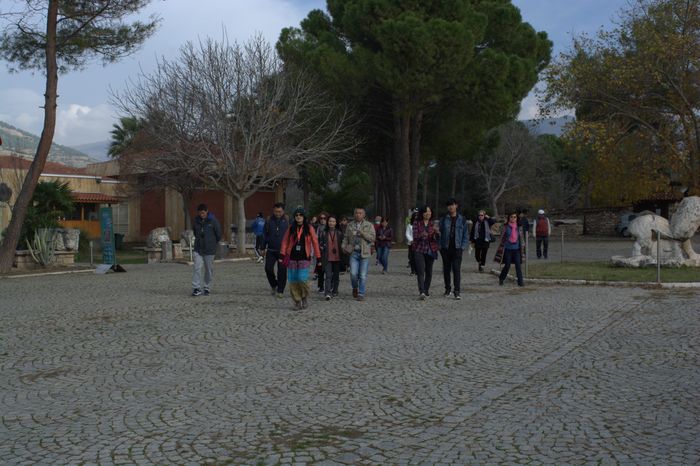8. Things are sacred which have been duly consecrated by the pontiffs, as sacred buildings and offerings, properly dedicated to the service of God, which we have forbidden by our constitutio to be sold or mortgaged, except for the purposes of purchasing the freedom of captives. But, if any one consecrates a building by his own authority, it is not sacred, but profane. But ground on which a sacred edifice has once been erected, even after the building has been destroyed, continues to be sacred, as Papinian also writes.
9. Any man at his pleasure makes a place religious by burying a dead body in his own ground; but it is not permitted to bury a dead body in land hitherto pure, which is held in common, against the wishes of a co-proprietor. But when a sepulcher is held in common, any one co-proprietor may bury in it, even against the wishes of the rest.
So, too, if another person has the usufructus, the proprietor may not, without the consent of the usufructuary, render the place religious. But a dead body may be laid in a place belonging to another person, with the consent of the owner; and even if the owner only ratifies the act after the dead body has been buried, yet the place is religious.
10. Holy things also, as the walls and gates of a city, are to a certain degree subject to divine law, and therefore are not part of the property of any one. The walls of a city are said to be holy, inasmuch as any offence against them is punished capitally; so, too, those parts of laws by which punishments are established against transgressors, we term sanctions.
Property of individuals
11. Things become the property of individuals in various ways; of some we acquire the ownership by natural law, which, as we have observed, is also termed the law of nations; of others by the civil law. It will be most convenient to begin with the more ancient law; and it is very evident that the law of nature, established by nature at the first origin of mankind, is the more ancient, for civil laws could then only begin to exist when states began to be founded, magistrates to be created, and laws to be written.
12. Wild beasts, birds, fish and all animals, which live either in the sea, the air, or the earth, so soon as they are taken by anyone, immediately become by the law of nations the property of the captor; for natural reason gives to the first occupant that which had no previous owner. And it is immaterial whether a man takes wild beasts or birds upon his own ground, or on that of another.
Read More about The Institutes 535 CE part 61








